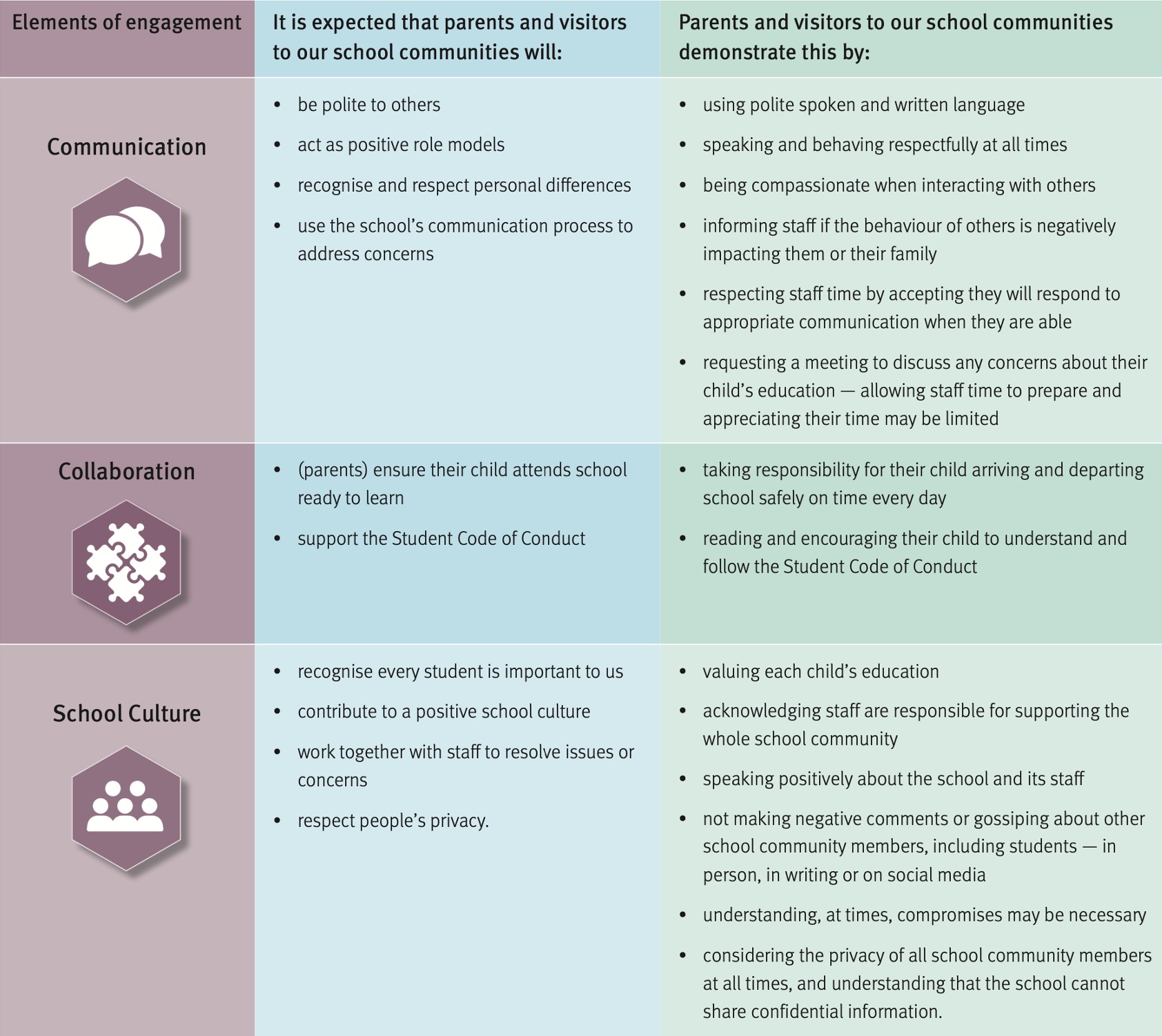Communications between the school and parents are supported by:
- Weekly parent and community newsletter, Brolga Bulletin;
- School social media channels including Facebook;
- Formal student achievement reporting;
- QParents web and mobile application;
- The school’s website;
- The promotion of continued regular contact between teachers and parents.
Reporting
School reporting is the process of communicating information on student achievement over a reporting period. Reporting may be formal or informal, including regular written reports, planned parent/teacher meetings and other communication between teachers/parents as needs determine.
Formal report cards are issued for students of years 7 to 10 at the end of each semester, with an interim progress report provided in terms one and three. In years 11 and 12, students are issued report cards at the completion of Unit 1, Unit 2, and Unit 3. Schools do not issue reports at the end of year 12—students will be issued their Senior Education Profile (SEP) from the QCAA through its student portal.
Parents who wish to discuss their student's progress with their teachers are invited to contact the office to make an appointment at any time throughout the year.
Parent and Community Code of Conduct
We welcome parents and other members of our diverse community into our school.
Working together with our school community, our staff support the learning and wellbeing of every student, and are entitled to a safe work environment.
Parents and visitors to schools are asked to support safety by ensuring their communications and conduct at the school and school activities is respectful.
 Grievances
GrievancesA key priority of our school staff, parents, and families is to foster a safe and healthy learning environment for all students. As a parent of a school-aged child, there may be times when issues arise that affect your child, for example a playground incident with another child or issues within the classroom. How those issues are handled can make a significant difference to the learning and development of our students, and the positive environments we aim to create and nurture.
Ask your child questions (who, what, where, when, how) to clarify the issue. This can give you an idea of whether your child is able to find their own solution to a problem, or if staff intervention is required. One of the skills children need to develop to operate in the world is to solve their own problems if they can, and adults play an important role in modelling how to do this effectively.
If you are concerned about your child’s academic progress or schoolwork, the relevant teacher may be able to suggest ways to help your child at home or help you to access additional support at school. If your child is experiencing persistent social issues, make an appointment with your child’s teacher as soon as possible. Together, you and your child’s teacher should be able to resolve the issue calmly and respectfully.
If you have a general issue—for example, having difficulty paying school fees or have concerns about a school staff member—you can get in touch with the school office administration staff to calmly discuss the issue and find a workable solution.
If you have approached your child’s teacher or school office staff and your issue remains unresolved, make an appointment to see the dean of students or the principal to discuss the issue further.